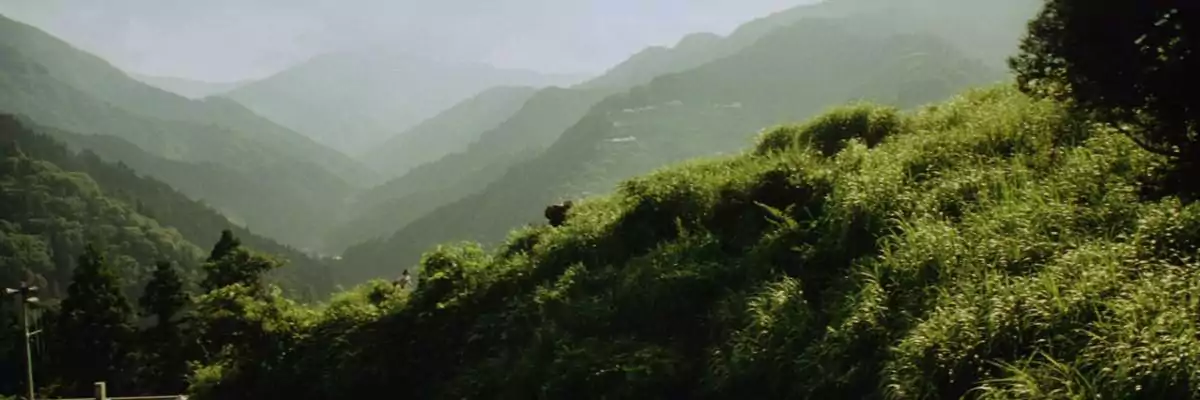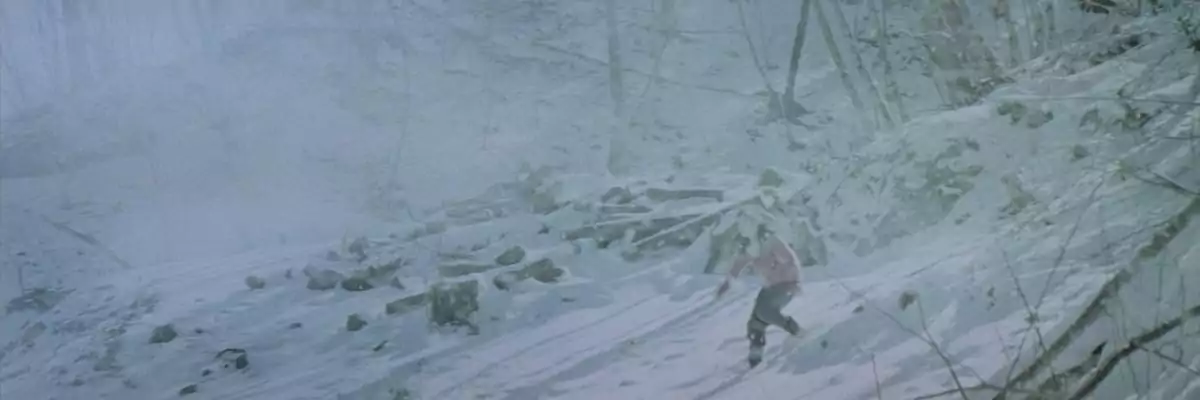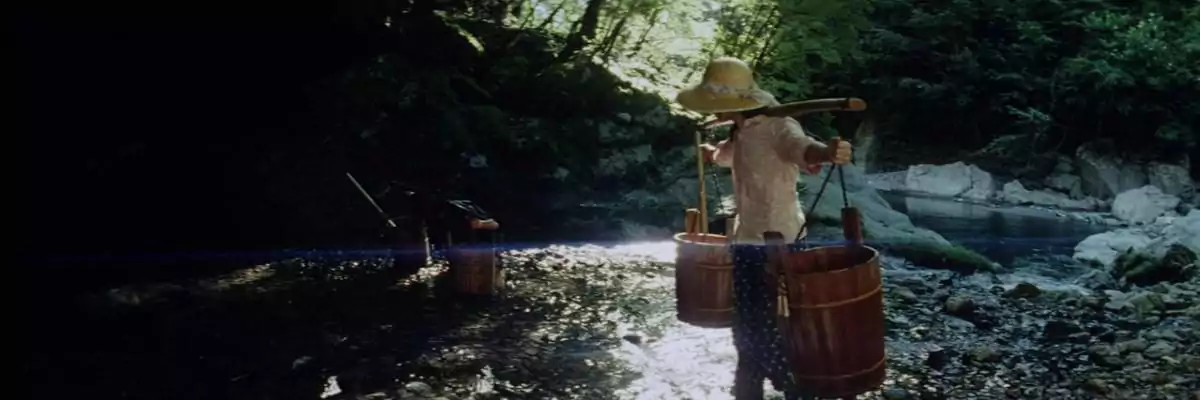The Tale of Iya
Some films seem tailored to become obscure gems, hiding away in the cracks of genre niches, shielded by language and/or country barriers. You usually run into them by chance or by taking a rare gamble. Tetsuichiro Tsuta's Iya Monogatari: Oku no Hito [The Tale of Iya] is such a film. It's far from an easy recommend and it's sure to be a frustrating experience for unsuspecting victims, but if you happen to be part of its target audience it's nearly impossible not to succumb to its charm.

The Tale of Iya is part drama, part mystery (with a tiny blip of eco-scifi thrown in for good measure). But it doesn't really try to blend these different elements into a cohesive whole. Instead the first 100 minutes are pretty straight-forward drama cinema, only to turn into a complex, unsettling and slightly dazzling mystery during its final hour. Usually I'm not a big fan of 120+ minute films, but the length really adds something to the impact of the thematic twist here.
The first part is a rather grim, rural Japanese drama following Kudo, a Tokyo resident moving back to the countryside. Fed up with the stress of city life, he aspires a more tranquil existence. He ends up in Iya, a secluded and small mountain village which is having some trouble of its own. Young people are moving away and the construction of the tunnel that is needed to improve transit between the town and the outside world is held up by demonstrators.
High up the mountain lives Haruna with her guardian, on old man who once rescued her from a crashed car. Kudo befriends the duo and Haruna teaches him how to survive in the harsh mountain setting. But life on the mountain is tough and once winter settles in both Kudo and the old man are having a difficult time surviving the barren circumstances. From there on out, things start to get a little weirder as the narrative trails off in an entirely new direction.

With a setting like this it's hard to shoot ugly material, but The Tale of Iya's beauty exceeds the pure, natural attraction of the mountains. Cinematographer Yutaka Aoki turns Iya into an almost otherworldly place, a mystical alternate reality that seems almost untouched by modern life. I did find the indoor scenes to be a little too murky though. I'm sure Aoki prided himself on using natural light only, but a bit more contrast inside would've been nice. Still, most of the film is spent outside and there are some truly inspiring shots to be enjoyed.
The soundtrack is a little less adventurous. The music remains respectfully in the background, the little music there is is mostly of the lone piano variety. The rest of the soundtrack is filled with ambient sounds that evoke that typical mountain atmosphere. It's known to work for a film like this and sure enough, the soundtrack is an asset. It's just not as remarkable or defining as other aspects of the film.
The acting on the other hand is well above par. Shima Ohnishi (a late Koji Wakamatsu regular) is great as Kudo and Min Tanaka puts in a great performance as the old man. But it's Rina Takeda who makes for the biggest surprise. Mostly known for her parts in cheesier genre flicks (High-Kick Girl! and Dead Sushi, to name two famous ones), she excels as Haruna and injects just the right amounts of mystery and drama into her character. As a little bonus, arthouse fans should watch out for an extended Naomi Kawase cameo.

The first part of the film is spent exclusively in Iya, focusing on a limited set of characters while also giving a broader view of the little mountain community. I feel Tsuta meandered a bit too much at certain points, for example spending too much time in a local wood mill. But these are just a handful of scenes in an otherwise strong drama. I suspect most people will have more trouble with the sudden switch in atmosphere, when Tsuta relocates his film to Tokyo halfway through. From then on the narrative becomes a little blurrier, with little or no explanations given.
The Tale of Iya is a film that comes with a built-in audience. Unless you're specifically scouting for obscure arthouse films or you're drowning yourself in Japanese cinema, chances are you'll never hear of this one again. But if you like a fresh challenge and you think you can handle the narrative loose ends and the crude switch in styles halfway through, The Tale of Iya is a little gem that begs to be discovered. Let's just hope it isn't Tsuta's swan song.
